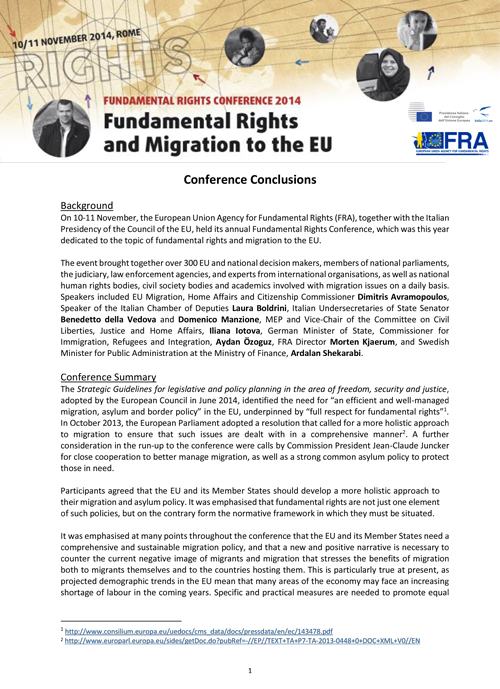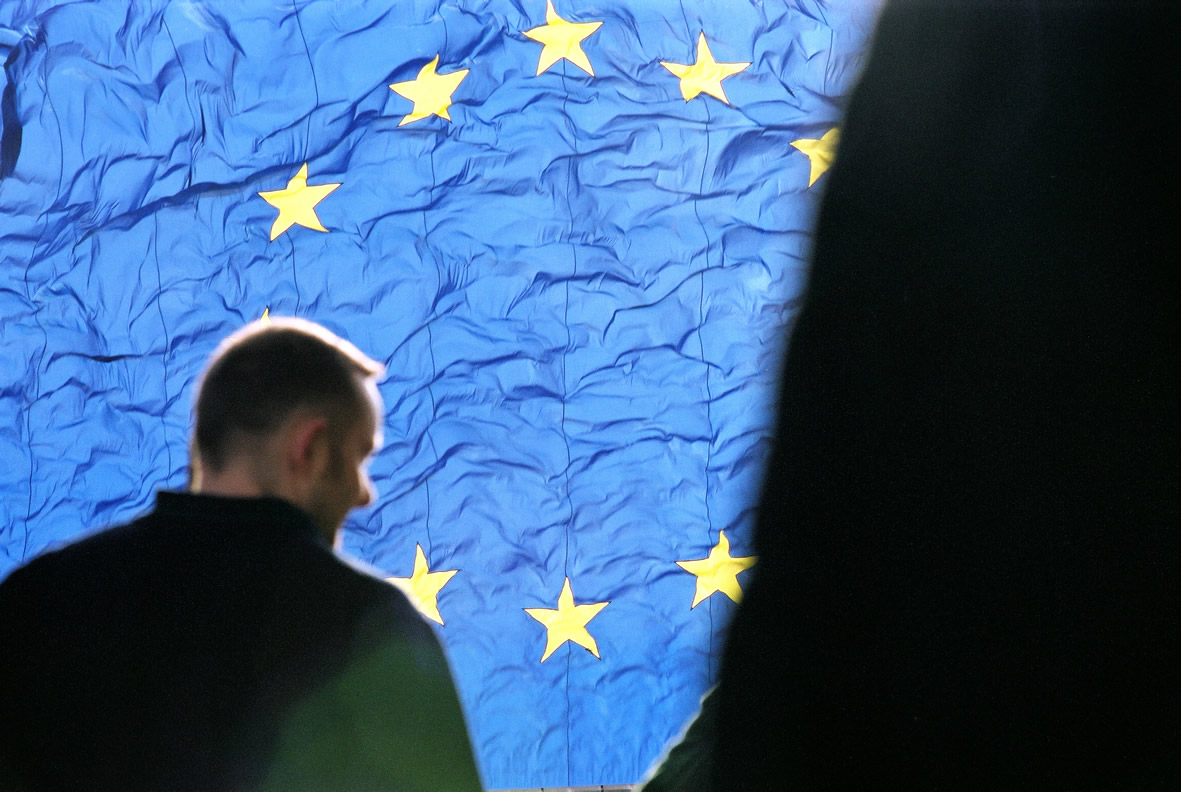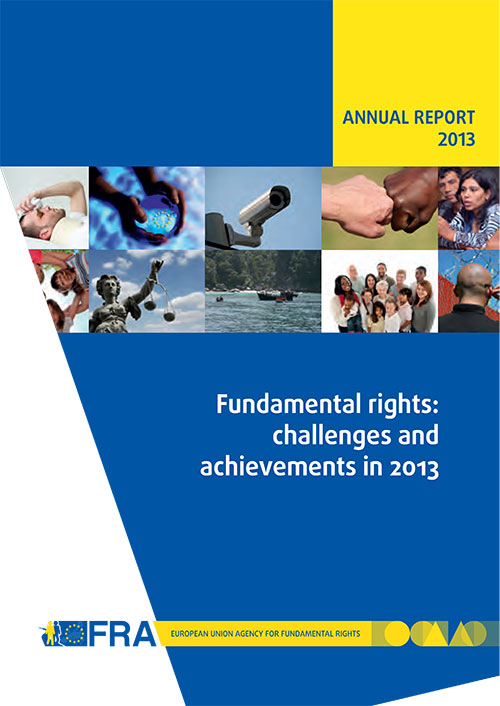A year in review: FRA highlights 2014
Date of article: 24/12/2014
Daily News of: 05/01/2015
Country:  EUROPE
EUROPE
Author:
Article language: en

FRA's output over the year reflected the diverse challenges the EU is facing. This ranged from unmasking the extent of violence against women in our society to increasing political discord surrounding migration and asylum, not to mention the challenge of balancing the rights of citizens with keeping Europe safe from potential security threats.
Combatting Violence Against Women
The everyday reality of violence against women in the EU was highlighted in FRA's landmark report Violence against women: an EU-wide survey. Based on face-to-face interviews with 42,000 women across the 28 EU Member States, this report is the world’s biggest-ever survey on violence against women, providing comparable data on women's experiences of violence across the EU for the first time. 
The findings were stark: 33% of women have experienced physical and/or sexual violence, the equivalent of 62 million women in the EU, more people than the entire population of Italy! The interviews also showed that 5% of all women have been raped and 18% have been stalked. In addition, it revealed how cyberharassment is likely to become a growing issue as more and more people communicate online.
The study was published some months before the Council of Europe’s Istanbul Convention came into force. This Convention provides a comprehensive framework for effective policies to combat violence against women across Europe. Together with the data from FRA’s survey, they form a strong platform to help eliminate the widespread violence that many women suffer, a process which FRA has been working on with a number of Member States.
Ensuring a fundamental rights-based approach to migration
This year's Fundamental Rights Conference focused on the issue of fundamental rights and migration to the EU. The event was co-organised with the Italian Presidency of the Council of the EU, and brought together over 300 policy makers and practitioners from across the EU. Conclusions from the conference pointed to the need to change the narrative concerning migration in the EU to reflect the necessity and benefits of migrants to their host countries, and to develop a more holistic approach to migration within the EU. There were key suggestions to:

- Ensure more clarity on the fundamental rights obligations of Member States at the EU’s external borders and in particular the need to avoid non-refoulement
- Increase legal avenues for people in need of protection to reach the EU, including resettlement and humanitarian admissions
- Step up the fight against smuggling, while explicitly excluding punishment for humanitarian assistance
- Ensure full implementation of the fundamental rights of migrant children, also during transit and reception
- Mainstream integration and social inclusion policies in general migration policy and monitor progress of Member States on integration issues
The event also saw the launch of two new 2 reports on migration procedures in the EU; Fundamental rights at airports: border checks at five international airports in the European Union, and Fundamental rights at land borders: findings from selected European Union border crossing points.
Shaping the EU's internal Security Strategy

FRA was invited to contribute to European Commission discussions on a future EU Internal Security Strategy for the period 2015-2020. These talks came in the wake of a UN Security Council resolution condemning the rising threat of violent extremism and underscoring the need to tackle the issue of foreign fighters.
FRA acknowledged the many challenges threatening the internal security of the EU, ranging from cybercrime to terrorism, while emphasising the importance of integrating fundamental rights into future internal security policies. This would help make the proposed measures more sustainable, while also securing legitimacy and public trust, a key issue in the wake of recent mass surveillance revelations.
Highlighting fundamental rights challenges and achievements across the EU
 Apart from the three main highlights for FRA mentioned above, Europe has taken important steps in protecting fundamental rights over the past 12 months in a number of areas, as FRA’s Annual report revealed. These include implementing legal reforms relating to asylum, progress in transposing the EU Victims’ Directive into national law and applying national Roma integration strategies. However, continuing limitations of financial austerity and crises like the Lampedusa tragedy indicate inconsistencies between policy and reality where significant improvements must be made.
Apart from the three main highlights for FRA mentioned above, Europe has taken important steps in protecting fundamental rights over the past 12 months in a number of areas, as FRA’s Annual report revealed. These include implementing legal reforms relating to asylum, progress in transposing the EU Victims’ Directive into national law and applying national Roma integration strategies. However, continuing limitations of financial austerity and crises like the Lampedusa tragedy indicate inconsistencies between policy and reality where significant improvements must be made.
